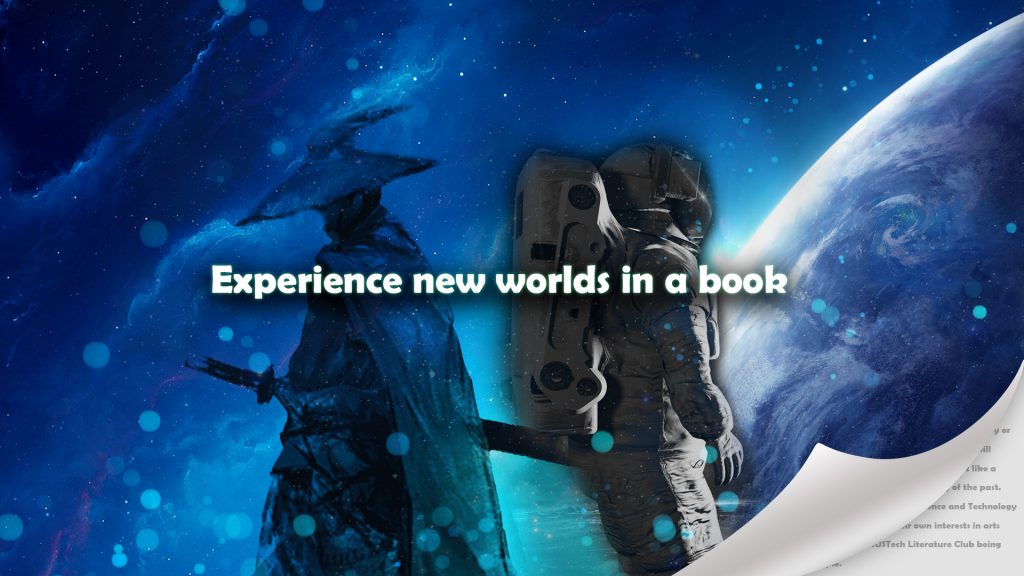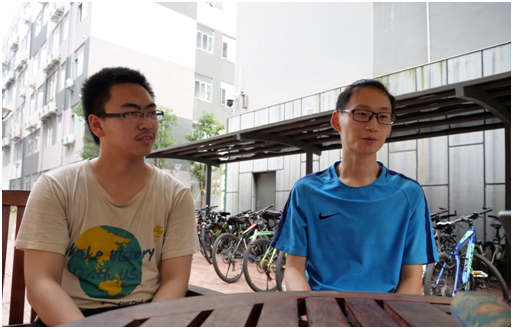For most readers, reading a book is just like a journey or to live a different life in a short period. Reading will broad your vision, make your world wider, just like a good conversation with the finest (people) of the past. Students at Southern University of Science and Technology (SUSTech) are also exploring their own interests in arts and literature, with the SUSTech Literature Club being such an example.
As part of the development of its talent pipeline, SUSTech has also been making great efforts to develop its liberal arts education. Students who are fond of reading and writing created the club, gathering together frequently to share their opinions and love of literature.

Freshman Lu Kai and sophomore Liang Yudong are the two leaders of the Literature Club. They both come from Northern China, but they have quite different characters. Lu is more lively and talkative, whereas Liang is more reserved and modest. It was their shared love of literature that helps them get to know each other.
Lu said: “I have no interests other than literature!” He joined the Literature Club because of his love and passion for it, and literature is relaxing for him. His favorite novel is Bai Lu Yuan (White Deer Plain) by Chen Zhongshi. He was attracted to the fascinating plot points in the story. Lu Kai was deeply moved by the local customs revealed by the book, and the history of the two families over the fifty year span of the story. On the other hand, Liang prefers Louis Cha(金庸)’s Kung Fu novels. He was engrossed by the Chinese traditional spirits represented by the characters, and is frank and fearless with his views about Chinese literature when talking with fellow club members.

Members of the club meet frequently to read together. The whole world seems quieter and wider when the members get together, and the creative juices flow with emotion. The interdisciplinary nature of the students results in new ideas jumping from student to student.
They often write a lot after reading different pieces. They write freely around a given theme, with the new works are shared and respected within the club. Each club-written piece is a treasure, reflecting the member’s dreams, loves and life.
The Humanities Center at SUSTech has developed a wide variety of courses about scientific fiction, Chinese opera aesthetics and aesthetic philosophy. These courses offer students opportunities to develop their interests and broaden their horizons.
Both club founders have taken several courses from the Humanities Center and the Arts Center. They both speak highly of courses taught by Professor Wu Yan and Liu Yang. Professor Wu Yan usually invites renowned writers from China and around the world to SUSTech to share their thoughts and writing skills together. The author of The Wandering Earth, Liu Cixin, was invited to share his views last year. Sci-fi loving students enjoy Wu Yan’s courses, and they are looking forward to another visit from Liu this year.
Many people regard The Wandering Earth as a thrilling new start for Chinese sci-fi movies, and the topic of sci-fi has since become far more popular. Science and literature combine together in sci-fi, and this is perhaps why Professor Wu Yan and Liu Yang’s courses are so popular. Lu Kai learned a lot about scientific fiction after reading The Three-Body Problem by Liu Cixin,. “There are distinct differences between soft and hard scientific fiction. When writers create soft SF, they combine their imagination with scientific knowledge. Hard SF focuses more on the technology itself, which requires a strong scientific background to understand,” he says. Lu thinks that sci-fi ultimately falls into the broad category of literature, and you will surely gain something from it as long as you read them.
SUSTech encourages Interdisciplinary learning, and has always encouraged students to combine science and humanity together. The courses from the Humanities and Art Centers inspire students to develop their interests. The SUSTech Literature Club offers students an opportunity to dig deeper into their preferred piece of prose. It takes time to truly take in the text, and the communal efforts of the SUSTech Literature Club is one way to get closer to understanding it.
Top Chinese books for you to read:
Proofread ByChris Edwards, Xia Yingying
Photo ByLiu Jiaqi, SUSTech Literature Club